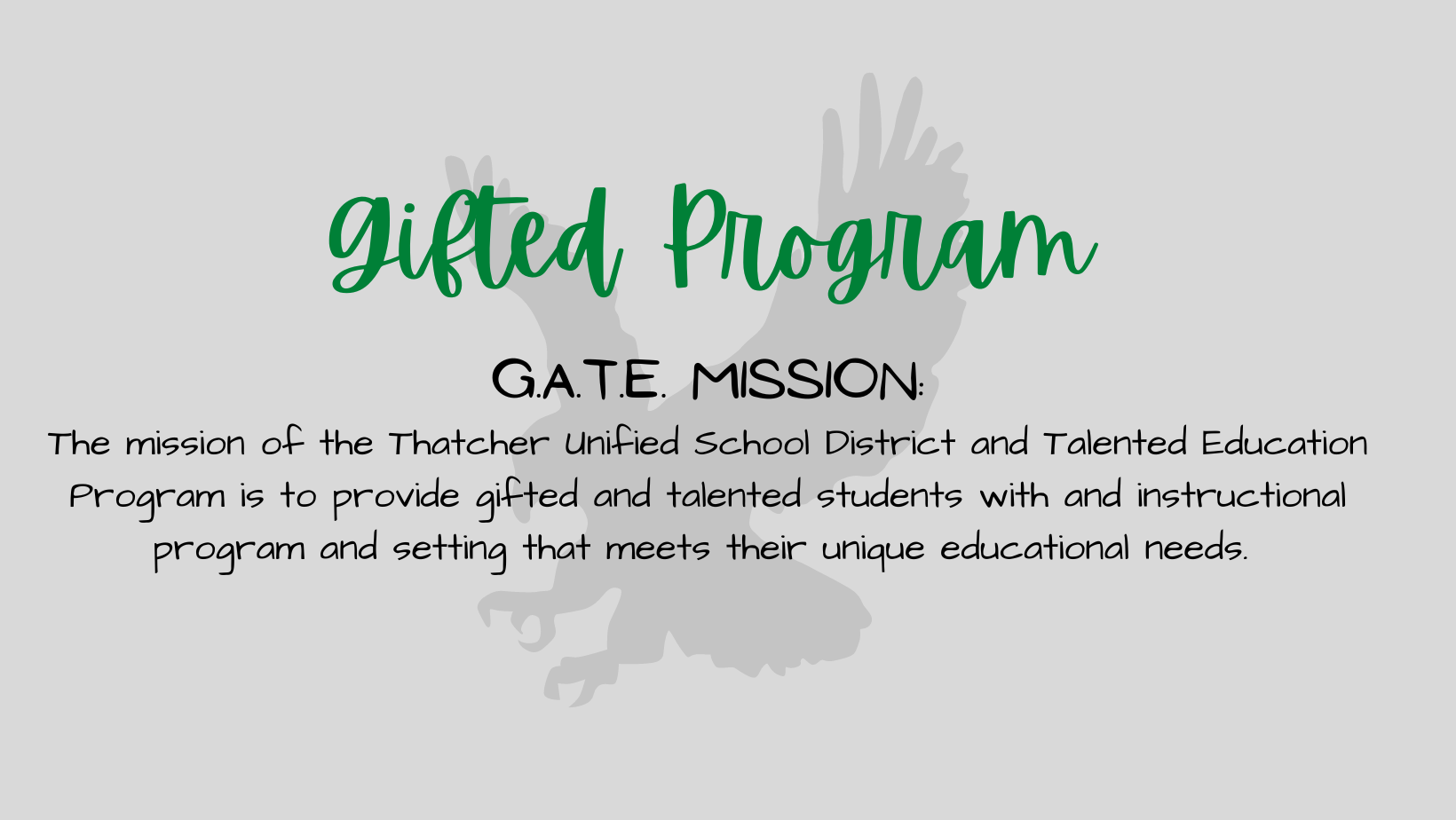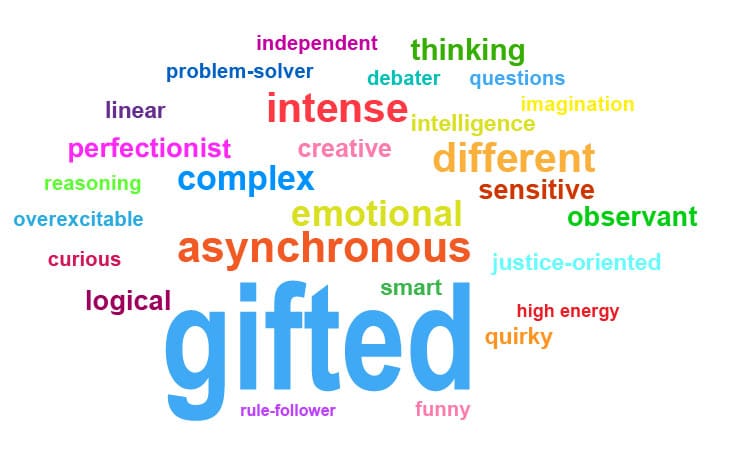Gifted Education- GATE


The goal of the TUSD GATE Program is to provide the following:
* Differentiated learning opportunities to support students in reaching their maximum potential
* Alternative learning environments to engage and enhance student learning
* Learning opportunities for developing sensitivity and responsibility towards others
* Providing teachers with training and support to help them offer challenging activities in and outside of the curriculum
* Learning opportunities for developing self-generating problem-solving abilities
* Providing parent education and involvement opportunities to foster a greater understanding of giftedness and the unique needs of their gifted child

Recognizing the Characteristics of Gifted Children
ERIC Clearinghouse on Handicapped and Gifted Children (1985) cites three types of
characteristics of gifted children: general behavioral, learning, and creative characteristics.
General Behavior Characteristics
Gifted children's behavior differs from that of their age-mates in the following ways:
• Many gifted children learn to read early, with better comprehension of the nuances of language. As much as half of the gifted and talented population has learned to read before entering school.
• Gifted children often read widely, quickly, and intensely and have large vocabularies.
• Gifted children commonly learn basic skills better, more quickly, and with less practice.
• They are better able to construct and handle abstractions.
• They often pick up and interpret nonverbal cues and can draw inferences that other children need to have spelled out for them.
• They take less for granted, seeking the "hows" and "whys."
• They can work independently at an earlier age and can concentrate for longer periods.
• Their interests are both wildly eclectic and intensely focused.
• They often have seemingly boundless energy, which sometimes leads to a misdiagnosis of hyperactivity.
• They usually respond and relate well to parents, teachers, and other adults. They may prefer the company of older children and adults to that of their peers.
• They like to learn new things, are willing to examine the unusual, and are highly inquisitive.
• They tackle tasks and problems in a well-organized, goal-directed, and efficient manner.
• They exhibit an intrinsic motivation to learn, find out, or explore and are often very persistent. "I'd rather do it myself" is a common attitude.
Gifted children are natural learners who often show many of these characteristics:
• They may show keen powers of observation and a sense of the significant; they have an eye for important details.
• They may read a great deal on their own, preferring books and magazines written for children older than they are.
• They often take great pleasure in intellectual activity.
• They have well-developed powers of abstraction, conceptualization, and synthesis.
• They readily see cause-effect relationships. • They often display a questioning attitude and seek information for its own sake as much as for its usefulness.
• They are often skeptical, critical, and evaluative. They are quick to spot inconsistencies.
• They often have a large storehouse of information about a variety of topics, which they can recall quickly.
• They readily grasp underlying principles and can often make valid generalizations about events, people, or objects.
• They quickly perceive similarities, differences, and anomalies.
• They often attack complicated material by separating it into components and analyzing it systematically.
Gifted children's creative abilities often set them apart from their age-mates. These characteristics may take the following forms:
• Gifted children are fluent thinkers, able to generate possibilities, consequences, or related ideas.
• They are flexible thinkers, able to use many different alternatives and approaches to problem solving.
• They are original thinkers, seeking new, unusual, or unconventional associations and combinations among items of information.
• They can also see relationships among seemingly unrelated objects, ideas, or facts.
• They are elaborate thinkers, producing new steps, ideas, responses, or other embellishments to a basic idea, situation, or problems.
• They are willing to entertain complexity and seem to thrive on problem solving.
• They are good guessers and can readily construct hypotheses or "what if" questions.
• They often are aware of their own impulsiveness and irrationality, and they show emotional sensitivity.
• They are extremely curious about objects, ideas, situations, or events.
• They often display intellectual playfulness and like to fantasize and imagine.
• They can be less intellectually inhibited than their peers are in expressing opinions and ideas, and they often disagree spiritedly with others' statements.
• They are sensitive to beauty and are attracted to aesthetic values.

